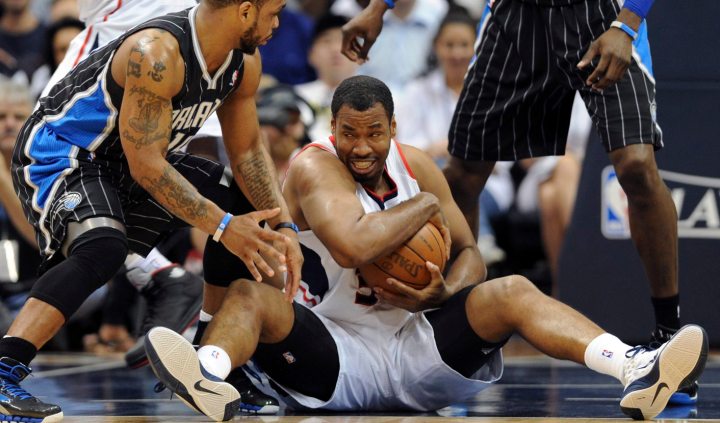Sport
Jason Collins’ coming-out party: Why it matters

American basketball player Jason Collins has revealed that he’s gay. It shouldn’t be news in this day and age, but it is – and it’s crucial news, too; potentially a watershed moment for sport. By ANT SIMS.
Sport is often tipped as having the power to bring people together, yet when a star athlete comes out as being gay, it’s often all but a unifying force.
Jason Collins, a US basketball player, has come out of the closet, and he’s the first active male athlete in a major American professional sport team to do so. In an interview for Sports Illustrated, Collins starts off as saying: “I’m a 34-year-old NBA center. I’m black. And I’m gay.”
While the reaction should be: so what?, it’s instead caused a stir in media across the globe. In an ideal world, somebody revealing their gay orientation wouldn’t be news – but it’s not an ideal world, and the ensuing media frenzy is one more reminder of how far sport has to go before genuine equality is reached.
As things stand, for Collins to do what he did – and to be the first American sports star to do so – is something quite tremendous. The 34-year-old admitted that part of why he wanted to come out was to start the conversation. Nobody is expecting a bunch of basketball players to suddenly fall out of the closet, but it must be one massive relief for others who are struggling with the decision of whether to speak out or not.
He’s not the first pro athlete to come out, though, and compared some who have come out before him, Collins has had it easy and his support network has been there to guide him along the way.
Others haven’t been so fortunate.
Robbie Rogers, a former US international and Leeds United player, came out as gay on the same day he retired from the sport. His coming out was far more emotional than Collins’. He was supported by some of his former teammates, but the sport still demonstrably held an archaic attitude towards homosexuality.
Anton Hysen, a 20-year-old who plays in the fourth tier in Sweden, made similar headlines in 2011 when he revealed his sexuality – and Vlatko Markovic, the head of the Croatian Football Federation, made his diabolical stance towards homosexuality public without flinching.
“While I’m president of the Croatian Football Federation, there will be no homosexuals playing in the national team … thankfully only normal people play football,” he told newspapers last year.
Coming out ended in tragedy for Justin Fashanu. A promising young striker, who was also the first £1 million black player, hanged himself after struggling with a double life for years. He experienced racism, too, of course but a close friend revealed in an interview with the BBC that it was the homophobic chanting from the fans that really got to him.
His brother had also said in an interview that no club was willing to give him a full-time contract since he first came out in 1990. He failed to reach his full potential and continued to drop down into the abyss of lower league football as the years went on.
He was questioned by police in the US after allegedly sexually assaulting a 17-year-old boy, and there were rumours that a warrant was out for his arrest in 1998. Fashanu returned to England amidst all this and killed himself. Later it was discovered that there was no warrant out for his arrest and the case against him had been dropped, with police saying they lacked evidence.
It’s one tragic tale of a prominent man who resorted to the worst possible solution for his problems – and this kind of outcome is one of the most important reasons why Collins’ coming out is so very important.
Collins insists he wants to still carry on playing sport or, at least, have a part in sport, and the fact that he will most likely be able to enjoy his pastime does serve as some encouragement, compared to those who have come out before him.
Whether it’s a sports star or just your average Joe, it’s important to find people to identify with and find a support network in order to prevent tragedies such a Fashanu’s from happening to anybody else.
Sport has a long, long way to go when it comes to accepting others for who they are, be it their sexual orientation or their skin colour, but thanks to people like Collins, at least the ball is starting to roll in the right direction now – even if that ball is rolling at a glacial pace. DM
Photo: Atlanta Hawks center Jason Collins (34) controls the ball in front of Orlando Magic point guard Jameer Nelson (14) in the first half of their NBA Eastern Conference Game 6 playoff at Philips Arena in Atlanta, Georgia April 28, 2011. REUTERS/David Tulis




















 Become an Insider
Become an Insider